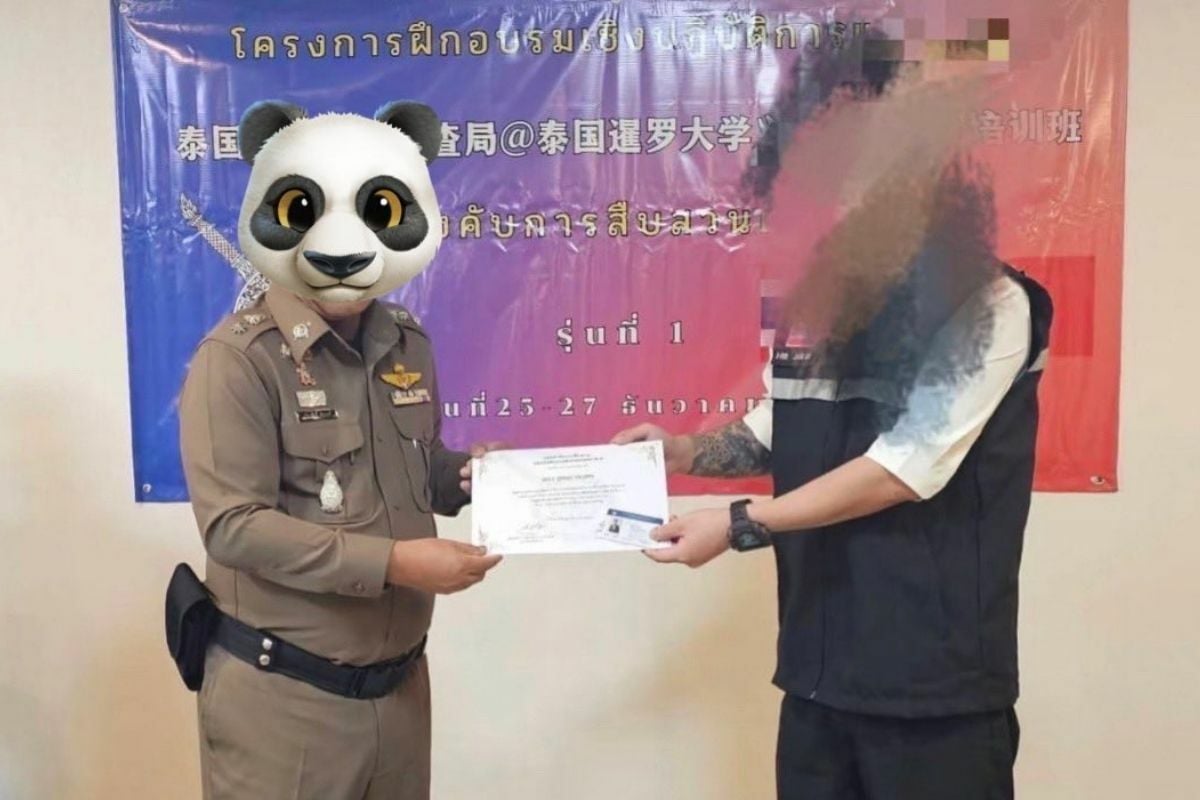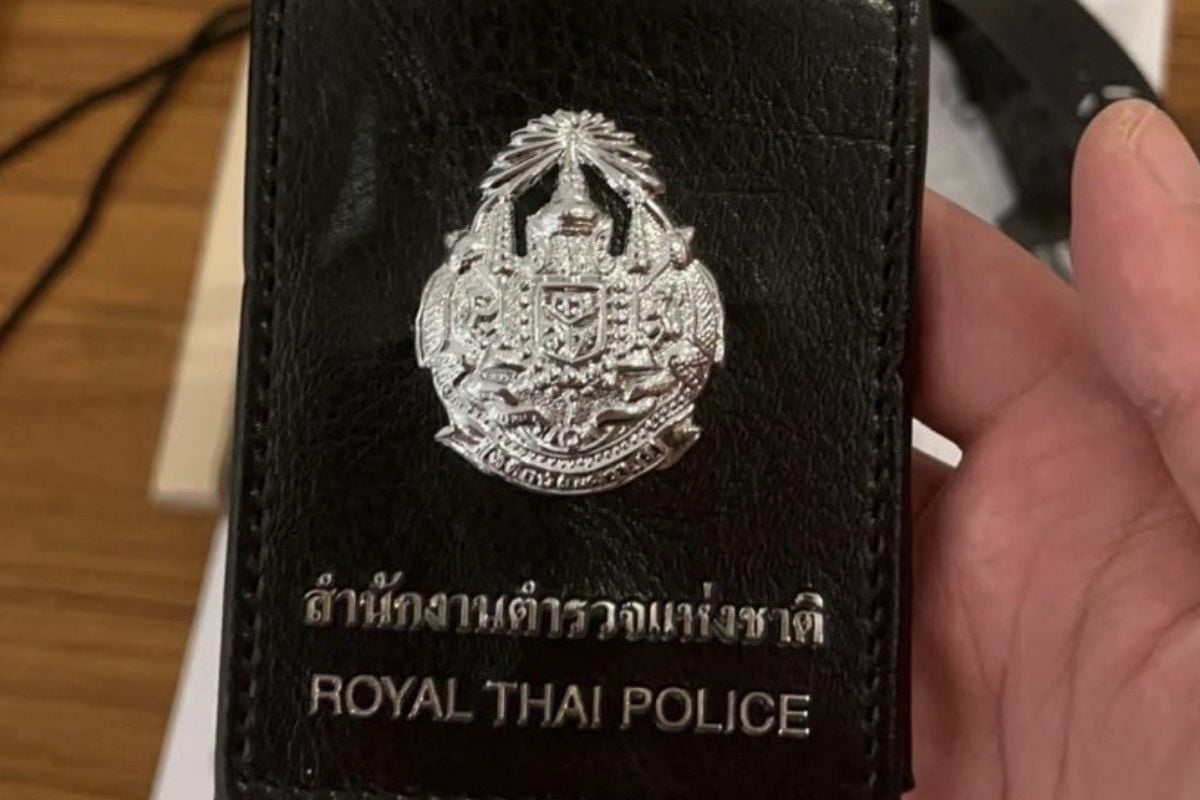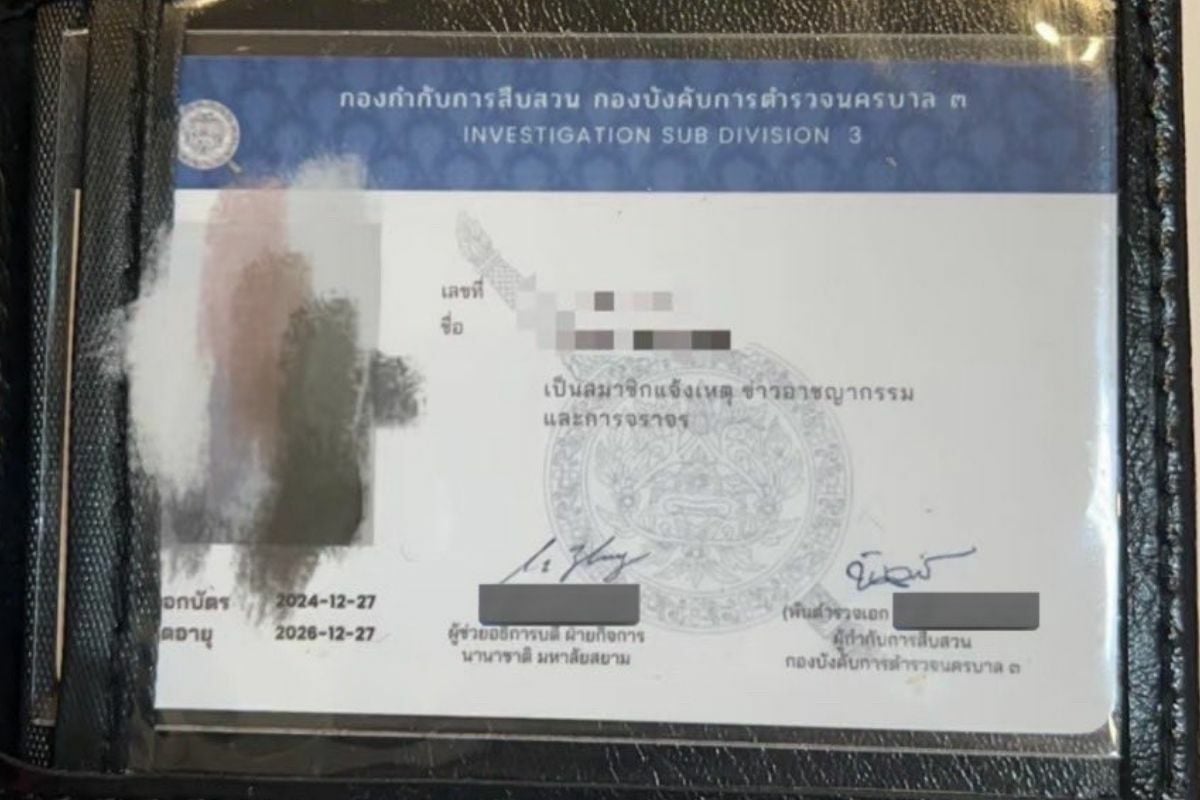MP demands answers on income and legality of Chinese police training

A Member of Parliament (MP) from the People’s Party raised questions to the Royal Thai Police (RTP) regarding the income generated from a special training programme for Chinese volunteer police, as well as the legality and effectiveness of the training, which took only three days to complete.
The MP, Sasinan Thamnithinan, shared her concerns on her Twitter account yesterday, January 1, drawing public attention to the issue. Sasinan stated…
“A police officer, who wishes to remain anonymous, sent me this story. It is worth questioning whether the RTP has the right to organise training for Chinese volunteer police and charge each participant 38,000 baht. Where does this money go? Where does the budget to organise such training come from? Is it legal to issue these volunteers with identification cards bearing the national emblem?”
Photos accompanying the post showed a police officer presenting a Chinese volunteer with a training certificate, an identification card, and a vessel with the Thai flag.
One of the photos detailed the training programme, which takes only three days to complete. It also included a breakdown of the 38,000-baht fee and listed the items each Chinese participant would receive upon completing the training.

Commander’s defence
The Commander of the Metropolitan Police Division 3, Kiattikun Sonthinain, later spoke to the news agency PPTV HD to clarify the matter. He explained that police officers were involved in the programme only as lecturers. The training itself was organised by Siam University in Bangkok, and the officers were not aware of the fees being charged.
According to the commander, the training was intended to provide Chinese students at the university with knowledge of Thai law. He also noted that the officers were unaware that participants would be issued items featuring the RTP’s national emblem.

The commander emphasised that the Chinese volunteer police did not work for the RTP in any capacity. The programme was merely designed to teach them basic legal knowledge for their daily lives in Thailand.
Despite this clarification, Sasinan continued to express concerns. She highlighted that officers from Metropolitan Police Division 3 do not have jurisdiction over the area where the university is located. She argued that officers from Metropolitan Police Division 9 should have been involved instead.
The MP further questioned the legitimacy of issuing documents and identification cards bearing the signature of a high-ranking police officer, suggesting that the training may have involved more than just a knowledge-sharing session.

Latest Thailand News
Follow The Thaiger on Google News:


























